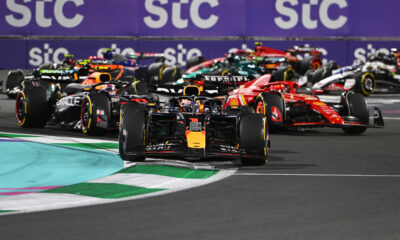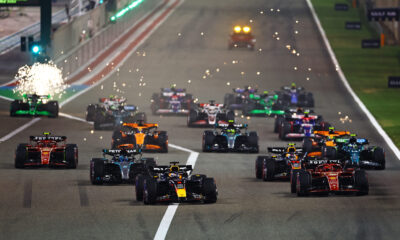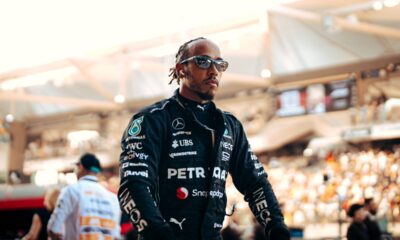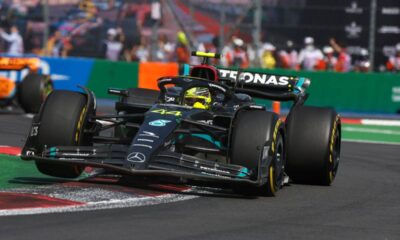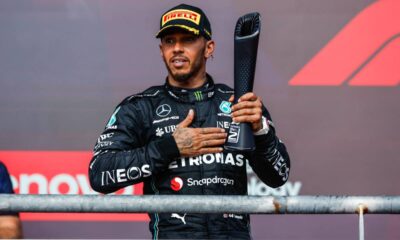More
Current status, doubts or life as a party boy: the Schumacher documentary reveals much
A legendary pilot and seven-time world champion, what more to add to this. Netflix has finally released the much-anticipated documentary on Michael Schumacher. How did his Formula 1 career begin and what is his current status?
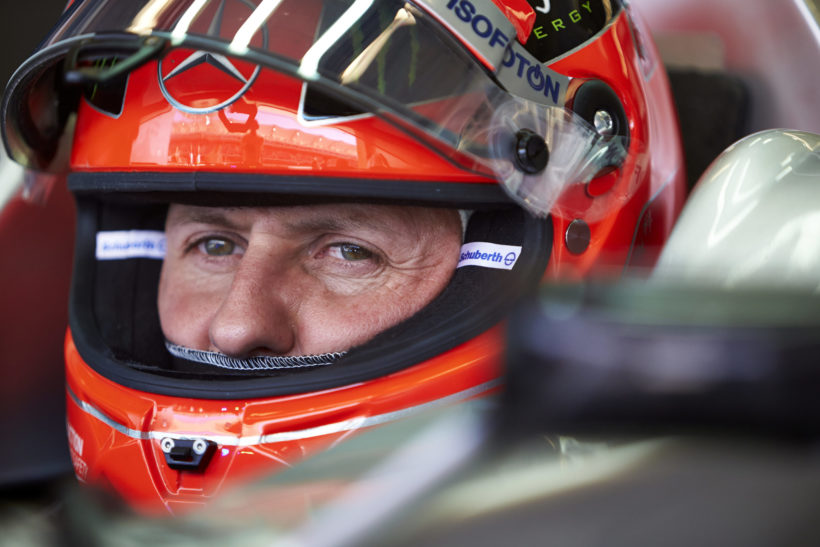
A legendary pilot and seven-time world champion, what more to add to this. Netflix has finally released the much-anticipated documentary on Michael Schumacher. How did his Formula 1 career begin and what is his current status?
The documentary, called Schumacher, will be released on Netflix on September 15, 2021. Is that a coincidental date? No, it’s not. On the day exactly over 30 years ago, the German driver entered Formula One. This film charts not only his career, but his life.
The film was made in collaboration with his family and features archive footage of races from the past and interviews with his wife Corinna and his brother Ralf Schumacher.
Netflix has made a lot of things public, not only in relation to his current state, but also his bad start at Ferrari or his personal approach to life.
1. Schumacher was a party boy
It was his wife who talked about how Schumacher was always the first to arrive and the last to leave at any party he attended. She also admitted that her husband had a penchant for throwing his friends into swimming pools.
David Coulthard, a former Red Bull or McLaren driver also confessed that when he wasn’t in racing mode, he enjoyed his evenings smoking cigarettes and singing karaoke and drinking Bacardi and Coke.
2. Back in his karting days, he used to drive around with tyres he found in a bin
Yes, Michael was one of the highest earning athletes in the world, but his beginnings were very rough. Schumacher did not come from a wealthy family, he even raced his kart races under the flag of Luxembourg.
The reason was simple, it cost nothing. He also drove with tyres he found in a bin. But this also motivated him, because he could win even with the worst equipment and in very uncomfortable conditions.
On the plus side, he knew the Kerpen circuit, next to which the Schumachers had their, admittedly slightly shabby, restaurant, like the back of his hand. He went out on the track as often as he could.
Even as a boy he knew what he wanted, and even then he trained like a professional. Thanks to these conditions, he built up a fighting spirit.
Formula One today is all about sponsorship and money. If you give a team a fat sum of money in addition to yourself, you’ll get a head start over a more talented driver.
But Schumacher had nothing. Still, his talent could not go unnoticed by manager Willi Weber, who offered the young driver a five-year contract with a monthly salary of 2,000 Deutschmarks.
3. Ferrari questioned whether they had signed the right driver
This is probably the biggest revelation. And it was Jean Todt, former Ferrari director and current FIA president, who admitted this fact years later.
Todt was the mastermind behind Ferrari’s dominance from 2000 to 2004. He successively recruited Schumacher, Ross Brawn and Rory Byrne to dramatically reverse the apparent decline of the Italian stable. In those years, none other than Schumi won the championship.
Further evidence of dominance was the five consecutive championships in the team standings (1999-2004). It wasn’t until 2005 that Renault, led by Fernando Alonso, ended this domination.
But Schumacher’s association with Ferrari began with the 1996 season, and at first it was not exactly a dazzling engagement. Daymon Hill won the championship that year, and a year later Michael failed to win a duel with Jacques Villeneuve. In 1998 and 1999, McLaren and Häkkinen dominated.
As a result, Todt wondered if they had signed the right driver. Shouldn’t their team have someone like the aforementioned Finn.
4. The wet track driving champion
Schumacher will forever be known as one of the best F1 drivers in wet weather. It was on a wet track that the German driver took his first win for the Italian stable.
“Growing up next to my father’s karting track obviously played a key role in developing this ability. As children we only drove slicks in the rain,” revealed his brother Ralf, who has driven for Williams and Toyota and won six grand prix himself.
In the film, Mikka Häkkinen tells the story of 1983, when he and Schumacher were a very promising pair of racers. Even then, the former McLaren driver was amazed at how clinically and with complete control he could race. While maintaining the necessary speed.
5. Schumacher suffered from insomnia after the death of Ayrton Senna
Michael has also shown on several occasions that he is not just the consummate professional. But that he also has a significant human side, of course he’s also “only” a human being.
After matching Senna’s record of 41 Grand Prix wins at the 2000 Italian Grand Prix, he was met with uncontrollable weeping at the post-race press conference.
But the film also reveals how much the legendary Brazilian’s death affected him. Netflix released an interview in which Schumacher fights back tears and admits he suffered in the following two weeks. After Imola, where Senna tragically died, Schumacher tested the Silverstone circuit where the next grand prix was to be held.
But all that went through his mind was where and at what corner he might be dead on the spot. He admitted that since then his attitude had changed somewhat, or rather he suddenly saw things in a completely different light.
6. He was naturally shy, doubtful and suspicious
Corinna Schumacher and, in fact, everyone close to him confirmed that outside of public appearances, the former Ferrari driver was shy, self-doubting and naturally suspicious.
The film shows viewers how Schumacher recovered from his 1997 championship loss. He was disqualified following a decision by the FIA, due to the events of the last grand prix in Jerez. That was when he (un)intentionally crashed into Villeneuve’s Wiliiams.
The commission found this action completely unacceptable and disqualified Schumacher. He then took a six-week skiing holiday, where, thanks to family archives, a relaxed Michale can be seen setting off fireworks with his lit cigarette.
His wife also describes in the documentary that he doubted himself before each season. He said he often wondered if he could still do it, or if he still had it in him and what he could do better. According to former Red Bull driver Mark Webber, he only fought with himself, his inner self, on the track.
He also always kept his distance. Corinna describes that even at the beginning of their relationship, it took a very long time for Michael to open up to her 100%.
7. In the fateful year of 2013, Schumacher almost chose skydiving over skiing
Another surprising revelation. Upon arriving in France, where the Schumachers had another ski holiday planned, he told his wife that the snow was not optimal.
He was very close to deciding to fly to Dubai after all. The document clearly demonstrates Schumacher’s penchant for skydiving. After his Formula One career ended, he is said to have made 24 jumps in one day.
In the end, however, the couple decided to stay, which proved fatal for them. 29 December 2013 is the date when the family’s whole life changed.
8. Schumacher’s rehabilitation takes place in the family home
“Of course I miss Michael every day. But it’s not just me who misses him. Whether it’s his children, his family, his father, everyone around him misses him. I mean, everybody misses Michael, but he’s still here.
He’s just different. It‘s also different, but the fact that he’s still here gives us strength,” Corinna said.
“We live at home together. We do therapy, we do everything we can to make Michael feel happy and make sure he feels good. We simply want him to feel our family and our bond,” she added.
Haas pilot Mick Schumacher spoke candidly about his father. “I think my dad and I would understand each other differently now, because we speak a similar language, the language of motorsport.
And we would have a lot to talk about. And that’s what I usually think about, I think how great that would be. I would give up everything else for that.”
Source

